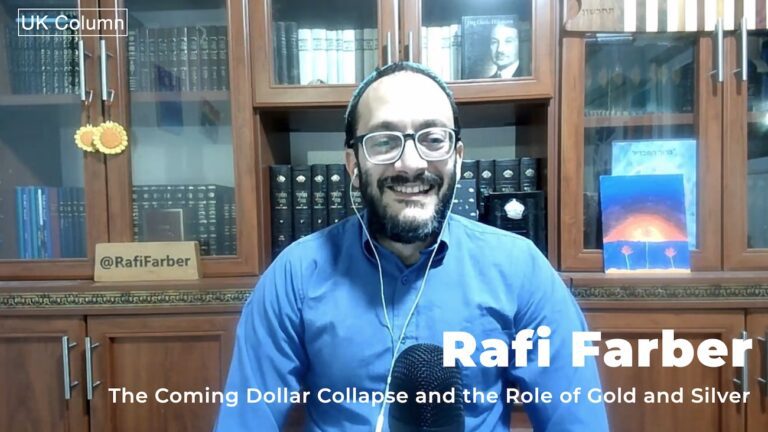Are we facing a collapse of the dollar and the global financial system? If so, why and how? Is there hope for the future or are we heading into dark times? If so, teeth Hope, if the dollar, euro, pound and yen are gone, what exactly will open the way? Can saba be used as money? If so, is silver better?
Raffi Farber (Youtube|twitter|Patreon) tackles these questions and many more with David Scott. Endgame In the case of fiat currency, the likely outcome would be the end of the dollar and a collapse due to a sudden global economic boom, i.e. hyperinflation.
Despite the ominous subject matter, Faber remains an optimist, looking to gold and silver – effectively commodity money – as a solution to maintain economic fundamentals such as the division of labor in a crisis brought about by the collapse of the world's major currencies.
The interview analyzes the sharp declines of the dollar, euro, pound and yen. All of these currencies are falling as the underlying debt securities on which they derive their value fall. For the first time, Faber shows that the difference is due to rising debt, not rising interest rates. Completely unsubstantiated Paper money, that is, worthless IOUs.
David and Raffi discuss why the dollar is a Ponzi scheme, why central bankers fall prey to the magic of econometrics, and the corrupting effects of their power. Additionally, the discussion explains Ludwig von Mises's regression principle (the value of money can be traced back (“regressed”) to its value as a commodity) and details why money naturally arises from people's transactions because it is the most liquid (i.e. most commonly desired) good.
The conversation ranges from the dangers of a society based on theft to the evil consequences and barbaric policies that often follow. In particular, Faber emphasizes that social decline is linked to theft through the deterioration of the money supply, not just in biblical times but in modern times as well. He argues that the Bible Condemnation “Your silver has become impurity” is not only a metaphor for moral decadence, but also an economic observation, he points out.
Ferber finally explains that theft is a zero-sum game, as is any system based on theft. But with honest money, both parties to the transaction benefit; that is, honest transactions are better than exploitation. When money (or a substitute for money) is political, the politics become more important and more divisive. Honest money and honest exchange allow people to help each other. In contrast, political systems are Leviathan battles for control so that the winning groups can exploit the losing groups. This perspective makes Ferber an optimist as he sees the end of an old, corrupt, harmful, and crumbling system.


